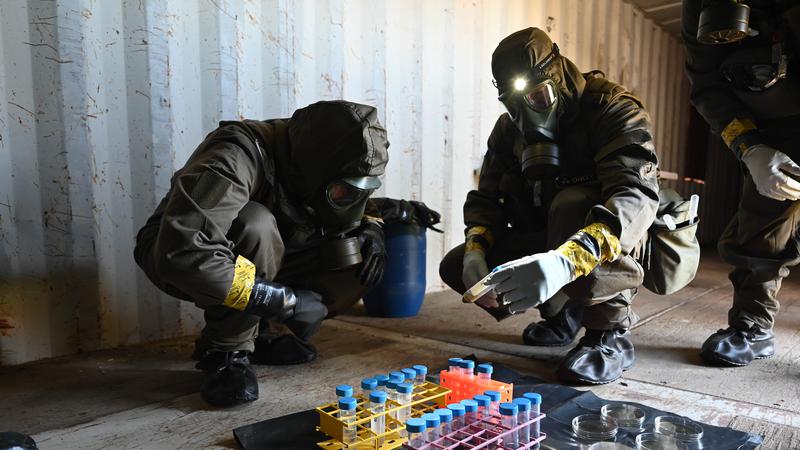
NATO training exercise aims to promote interoperability, readiness
CFB SUFFIELD, AB – Close to 380 NATO soldiers from 13 countries have called CFB Suffield home for the past month, participating in Exercise Precise Response.
The annual chemical, biological, radiological and nuclear (CBRN) training exercise is hosted by Defence Research and Development Canada. It’s the country’s contribution to NATO’s CRBN Defence Batallion.
The training exercise that started in 2004 creates live-agent scenarios that mimic real-world threats.
